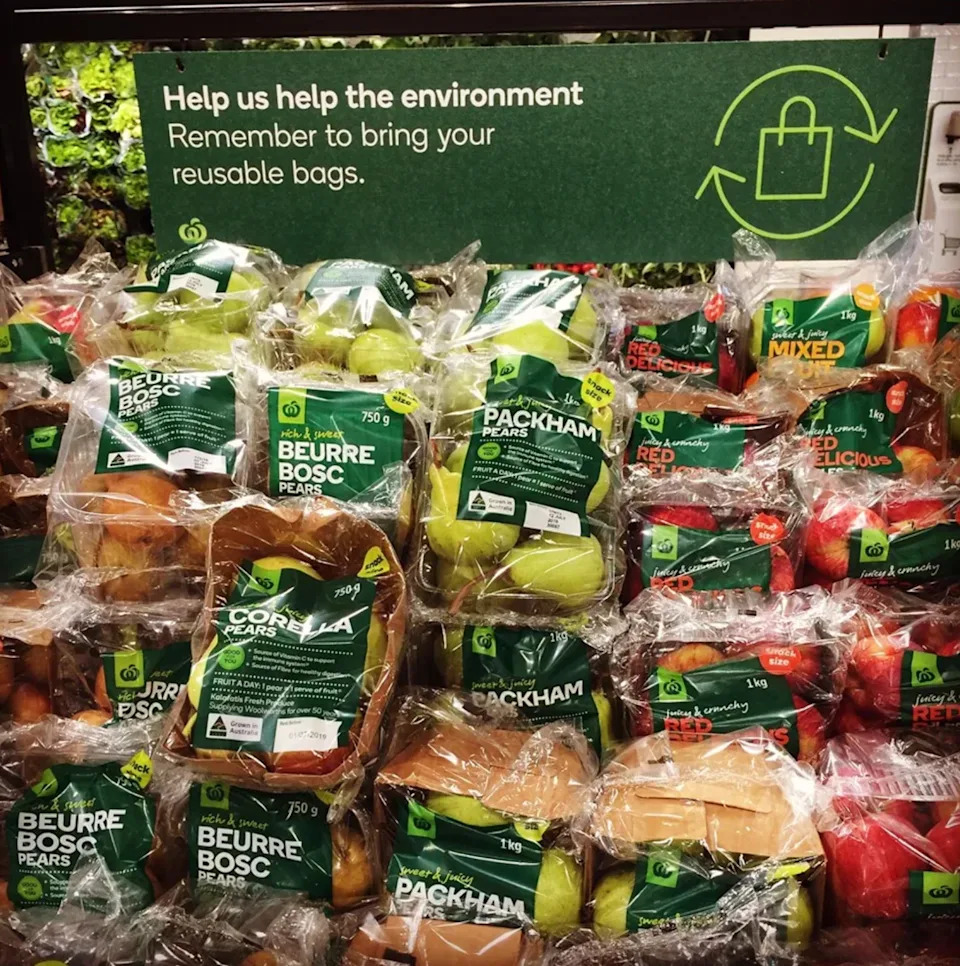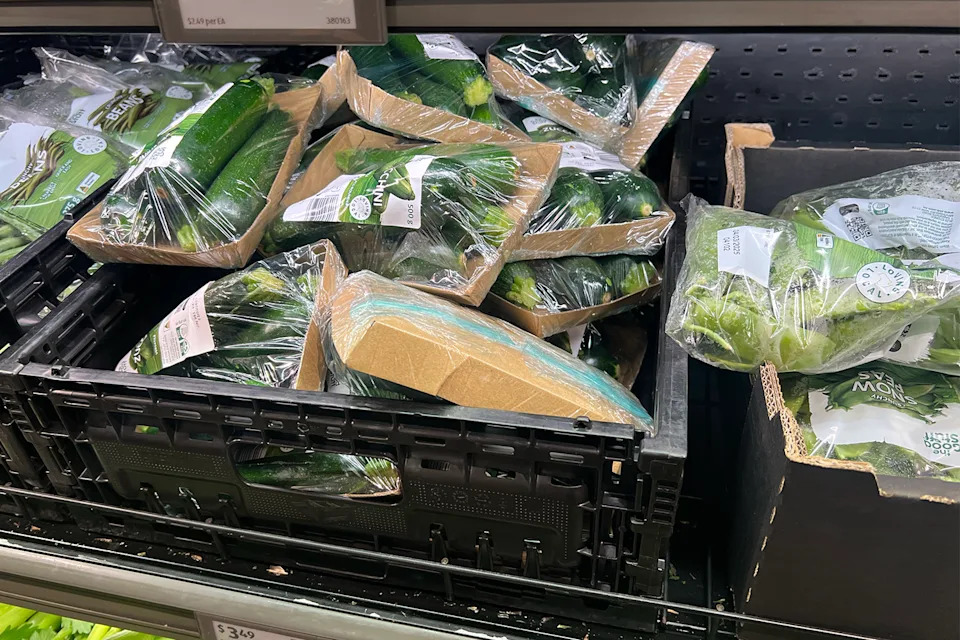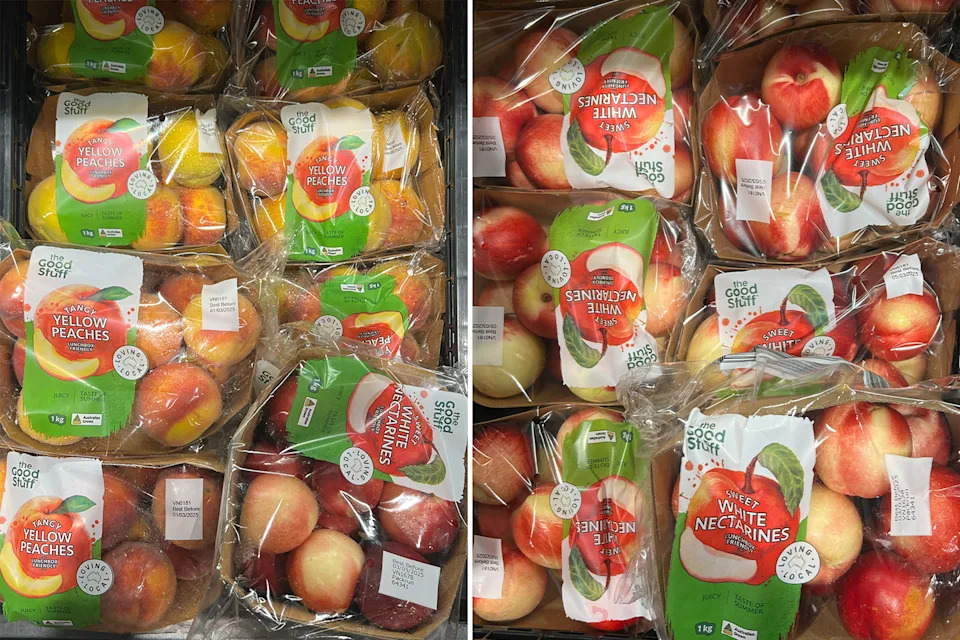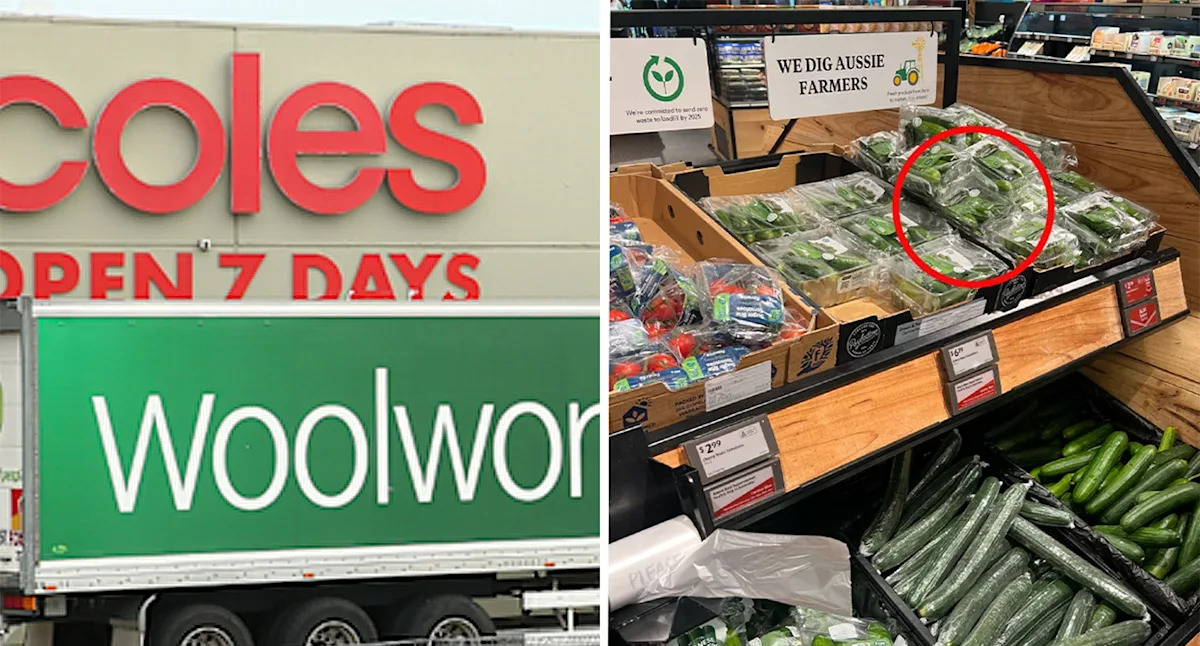Supermarkets are pitching a new plastics recycling scheme they say will help clean up the mess left by REDcycle’s collapse — but critics warn it could leave everyday shoppers paying more at the checkout while letting the big brands off easy.
The Soft Plastics Stewardship Australia (SPSA) plan, backed by Coles, Woolworths, Aldi and major manufacturers, is currently being considered by the competition watchdog, the ACCC. It would see participating companies charged a levy for every item of soft plastic they put on shelves, with the money going towards recycling programs.
On paper, it looks like progress. But waste campaigners argue the fine print tells a different story.
“I think one of the biggest things is, it looks good on the surface … but we don’t have any regulatory framework, so [the retailers] literally make the rules, and that gives them no reason to reduce or avoid the plastic, just to pass costs on to consumers,” Kirsty Bishop-Fox from Zero Waste Victoria told Yahoo News Australia.

Supermarkets are pitching a new plastics recycling scheme, but not everyone’s impressed. Source: Facebook
What’s being proposed by Australia’s biggest supermarkets?
The levy would start at one cent per item and rise to four cents over the coming years. And while that might sound small, Bishop-Fox warned shoppers shouldn’t be surprised if it ends up baked into the price of groceries.
“The core feature of the voluntary scheme, which really entices the brands to come on, is that they can pass the cost on. And it’s written into the application that there will be, to start with, the cent, and it will go into four cents over the next few years,” she said.
Unlike aluminium cans, which can be resold for profit, soft plastics have no real value — they actually cost money to recycle. That’s why supermarkets want the levy to cover the expense.
“When you recycle something like aluminium, aluminium has a value. So someone will buy that aluminium off you. With soft plastics, it doesn’t have the same value. It costs to recycle it, and that’s why the costs are being placed on the scheme,” Bishop-Fox said.
Another concern is who will be in charge. Under the plan, supermarkets and brands would sit alongside just two independent board members.

Aldi once led Australia’s supermarkets in reducing plastic packaging. Source: Yahoo News
“They’re not talking about what they’re doing to reduce plastic, and we know that people are frustrated going shopping and seeing plastic that they can’t avoid,” Bishop-Fox said. “We know that so much of it is unavoidable, but we know that some of it could be reduced.”
She argued the scheme has no commitments to cut plastic use at the source. Adding to the tension, Coles and Woolworths are also pushing to claw back $16 million they spent clearing stockpiled plastic after REDcycle collapsed — despite previously pledging to cover the cost themselves.
While Bishop-Fox gave supermarkets some credit for stepping up during the REDcycle crisis, she said the push to be reimbursed highlights why stronger oversight is needed.
“They need to look at it from the public perspective,” she said of the ACCC’s role. “There’s definitely a clear public benefit of recycling, but they’ve actually got to look at the public harms of the supermarkets controlling it, and put conditions in place so that it’s really stacked in favour of public outcomes, not commercial interests.”
If she had her way, Bishop-Fox said the government would be running the show — not supermarkets.
“It would be that we actually had the government step up and mandate what had to happen. That would give the public a lot more trust in the scheme.”
She also noted the scheme only deals with “post-consumer” plastics like shopping bags and food wrappers, ignoring mountains of “pre-consumer” waste such as pallet wrap used in supply chains.
“There are some pros and cons with that, but the con is, they’re not managing all the plastic,” she said.
Yahoo News contacted SPSA for comment regarding Bishop-Fox’s criticisms. It failed to answer direct questions, but a spokesperson said the organisation had “one clear mission: turning soft plastic into a valuable resource and reducing soft plastics going to landfill.”
“We believe in a future where soft plastic packaging is part of a truly circular economy in Australia, where materials are collected, recycled or repurposed, where supply chains are secure, where environmental harm is minimised, and where the community can trust in the outcomes,” they said.
Coles declined to comment when approached, and no response was received from Aldi at the time of publishing. A Woolworths spokesperson demonstrated a willingness to look into questions.

The SPSA plan would see participating companies charged a levy for every item of soft plastic they put on shelves. Source: Yahoo News Australia
Bishop-Fox stressed the problem is much bigger than what’s in your shopping trolley. “It’s big, it’s complicated, I can’t sit here and give you an easy solution. But we do know there are aspects: there’s the plastic that’s created — we have to remember that these brands are deciding what plastic is created — then there’s what happens when we buy it, then the collection … and then the recycling,” she said.
“Making sure that, if it goes to recycling, is it going into a road? Is it going back into a plastic bag? What’s happening to it? We’ve got some guidance on that, but no clarity on where the boundaries are drawn.”
The ACCC will hand down its final decision in October. Until then, the debate boils down to a simple question: should Australians trust supermarkets to police their own plastic problem?
“They need to be making solid efforts to reduce plastic, not just focus on recycling,” Bishop-Fox said.
Do you have a story tip? Email: newsroomau@yahoonews.com.
You can also follow us on Facebook, Instagram, TikTok, Twitter and YouTube.


